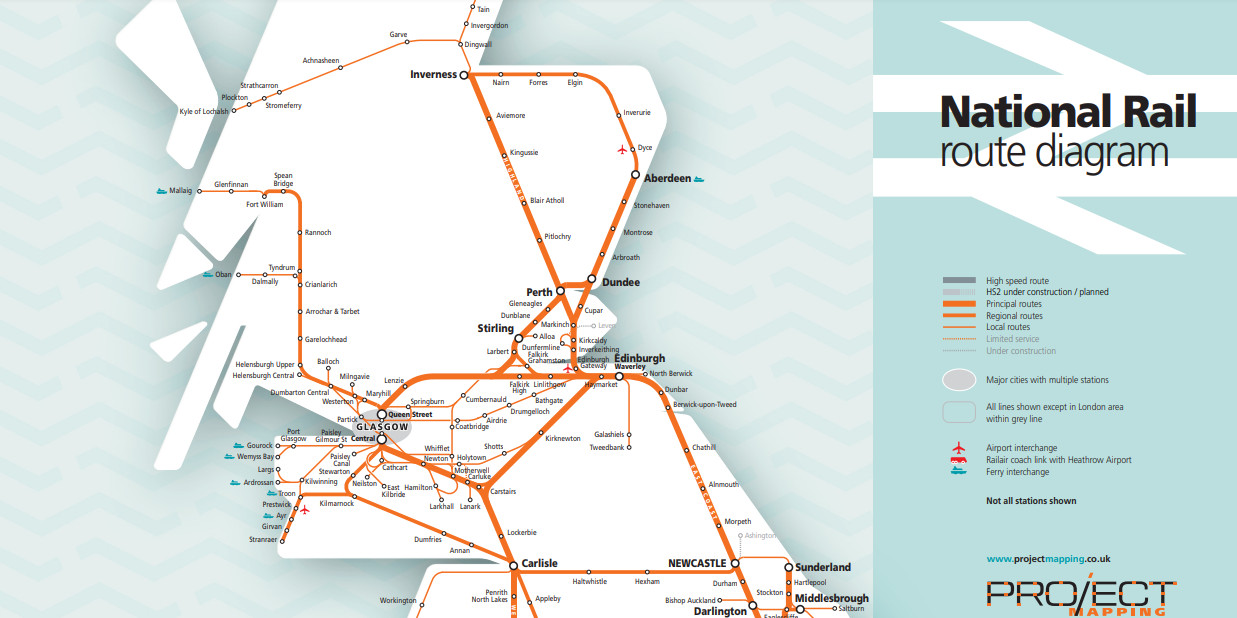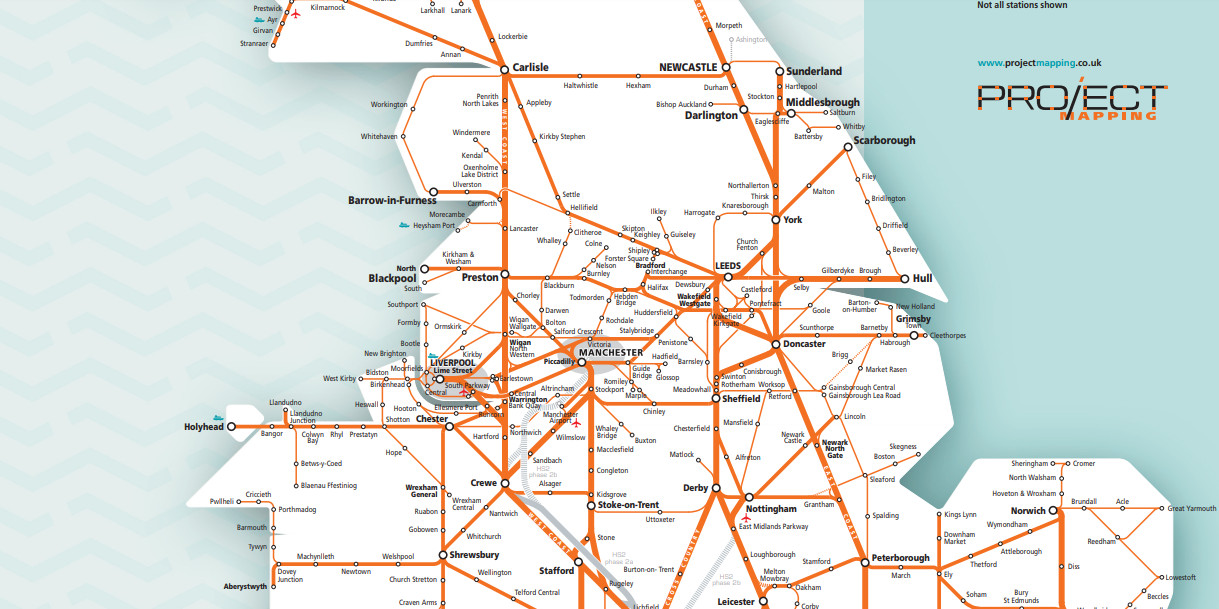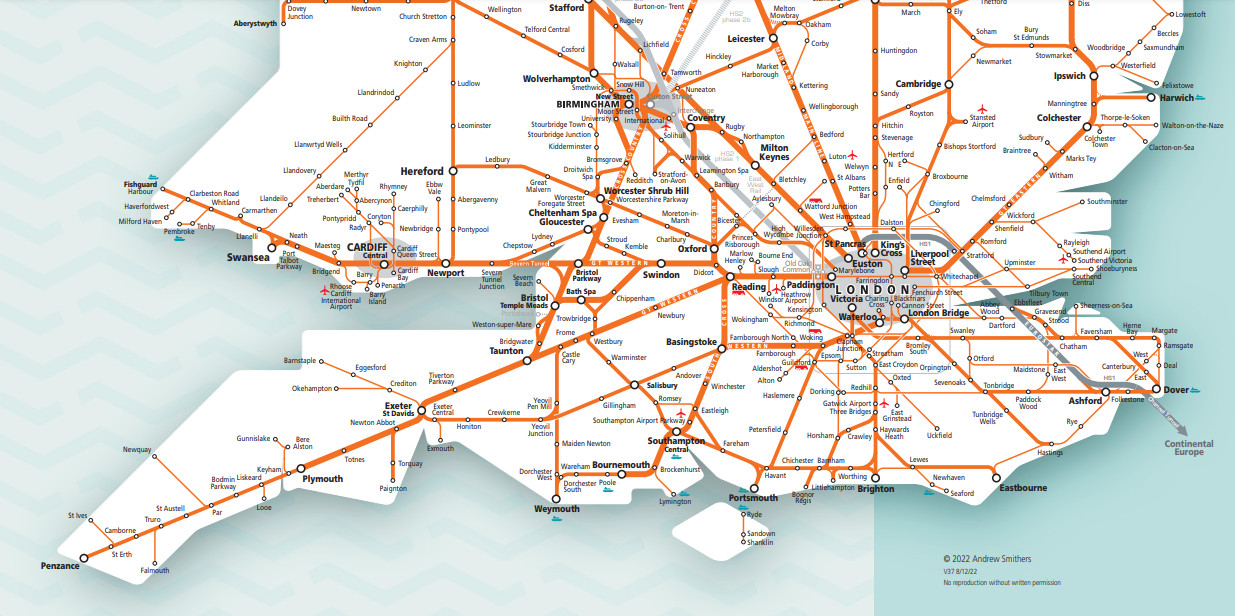
Date: 2026-02-28 Page is: DBtxt003.php txt00024852
UNITED KINGDOM
UK RAIL NETWORK
A very dense network with a very long history and now highly modernised
UK RAIL NETWORK
A very dense network with a very long history and now highly modernised



Open PDF map: UK-National-Rail-Route-Diagram-24852.pdf
Peter Burgess COMMENTARY
When I was a young boy I took every opportunity I could to collect 'engine numbers', and in the process learned quite a lot about the equipment that was being used on the railways in Britain in the post-war years and the 1950s. This was, of course, at that time a system that was driven by steam with a few experimental locomotives starting to appear that did not use steam.
My first memory of a train journey was travelling to Preston in Lancashire from London Euston when I was about 4 years old. This was 1944 and the war was still going on. The train was crowded mainly with soldiers going on leave. It was night and there were no lights in the compartments to avoid attracting an air attack ... the windows had screens as well. It was a long journey of around 300 miles and it took many hours. I was with my Mother. My Father would tavel about a week later.
During my childhood, we had a travel and holiday routine. We lived in Surbiton, a suburb of London until August 1945, when my Father changed jobs and we moved to Okehampton in Devon. During the Christmas and Easter vacations we travelled to my grandparents and relatives who lived in the North of England. My maternal relatives lived near Preston in Lancashire and the Father's side of the family lived in Wakefield in the West Riding of Yorkshire. While rationing was in place after the war including petrol rationing we travelled by train and it was only a few years after the end of the war that we started to make these journeys by car. I still remember the look and the layout of the stations in Exeter and Crewe where we usually had to change trains.
By the time I was in my early teens, some new locomotives started to appear. English Electric which was located in Preston started to produce a diesel-electric locomotive ... the Deltic design ... that atarted to replace steam locomotives. As a 'train' spotter' in around 1951 we ... my cousins and I ... took photographs of a gas-turbine prototpype locomotive manufactured in Switzerland that was being tested on the old Great Western line from London to Plymouth. My cousins and I learned a lot about the different designs of locomotives used by the different companies that ran the railways and the engineers responsible for these designs ... Sir Nigel Gresley for the LNER, ??????? for the LMS, ?????? for the Southern Railway, not to mention Isombard Kingdom Brunel for the GWR
My interest in engineering has stayed with me all my life. In the early 1960s early in my adult career I was able to take a trip to visit the work that British Rail was starting to do to electify the main West Coast line from London to Preston.
Fast forard about 70 years and I have been playing 'catch-up' with modern rail engineering as it applies to the British rail system. I am quite surprised at the technical progress that seems to have been made andhow little of the technical 'good news' gets into the media. I have been aware for decades that the 'gutter press' was never going to report important information ... but I have now started to conclude that the mainstream serious press is not doing a very good job keeping the public informed very well about a whole array of important matters. I am coming to the conclusion that most reporters are not doing a very good job but I have no idea what should be done to address the problem. I am sure that there are many different issues that are causing this most of which have been around for years if not decades.
My conclusion about the railway system in the UK is that it is a whole lot better than I would have believed if I was simply taking the information from the media and its messaging!
Peter Burgess


